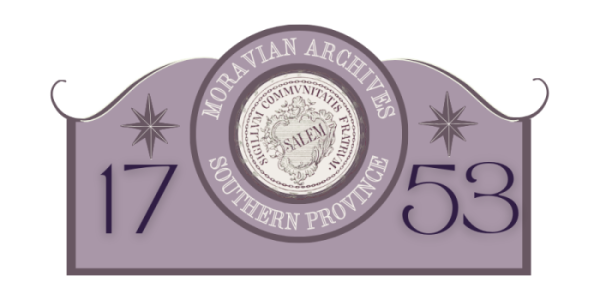Fulp Moravian Church
It was 1893, and about 15 miles north of Salem in Stokes County near Walnut Cove the people had a desire to have a Sunday school and church. They invited James T. Lineback, the Moravians’ Sunday school superintendent, and he and the Rev. Samuel A. Woosley came out on April 30 to hold services in Dr. Elias Fulp’s schoolhouse. Not a single “original Moravian” resided in the neighborhood, yet the services gave such “bright prospects” for future work in the area that Br. Lineback returned two weeks later, on May 14, and organized the Sunday school with 58 members.
Br. Lineback described the meetings this way. He would ride out from Salem on the train and spend Saturday night at the home of a Sunday school teacher or scholar. Young neighbors would gather to sing hymns that would be used the next morning. One such evening when the young friends parted for home, as Lineback “lingered under the large apple tree by the door, the song of happy childhood was lost in the distance, and in place of it was heard the whistle of the whippoorwill.” Next morning at 10 a.m. services would be held in the schoolhouse.
As services continued through that summer and fall interest increased. Dr. Fulp offered to provide land for a church and graveyard. On November 11, 1893, a Saturday, Bishop Edward Rondthaler rode the train out with Br. Lineback and organized Fulp as a congregation of the Southern Province.
A church building followed the next year, 1894, and Bishop Rondthaler consecrated it that October 28 with an overflow congregation that had children sitting on the pulpit platform. The church still serves Fulp congregation more than 100 years later.
After the initial organizing and building burst, Fulp fell into a period of decline in the early 1900’s. The Moravian Church struggled to give all its new churches a pastor and had to leave Fulp vacant.
Then in 1920 Br. Joseph D. Fulp asked Fries Memorial’s pastor, C. E. Romig, for help, and regular pastors have been assigned to Fulp ever since. Most notable has been the service of John Fry from 1964 to 1990 — a total of 26 years.
